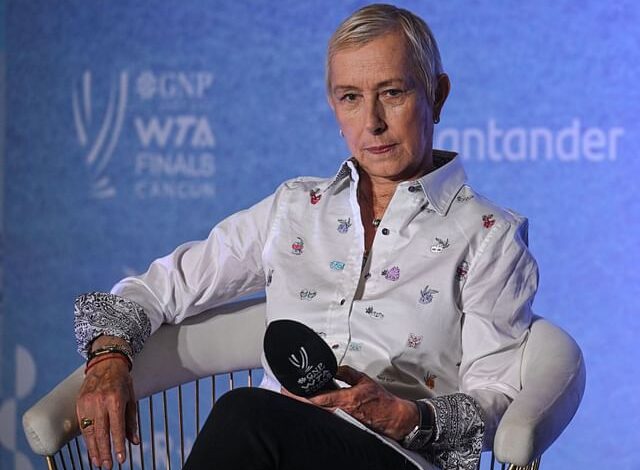“Crowd started booing, umpire was instructed not to say my name”: When Martina Navratilova was engulfed in ‘sadness’ on return to Czechoslovakia

Martina Navratilova’s return to Czechoslovakia in 1986 for the Fed Cup final was an intensely emotional homecoming, full of complex emotions that underscored both her deep connection to her homeland and the lasting scars of her defection. Navratilova, who had left Czechoslovakia for the United States in 1975 to escape the oppressive communist regime, was returning after more than a decade away.
In that time, she had achieved immense success as one of the world’s top tennis players. However, the political climate in her homeland had remained tense, and her return to play for the U.S. team was far from a simple reunion.
Navratilova’s return stirred national pride among Czech fans who still remembered her as a local hero. But her defection years earlier made her a contentious figure in the eyes of the government.
Upon arriving in Prague, Navratilova was met with mixed reactions. The home crowd, eager to see one of their own on the world stage, packed the stands, often climbing fences just to catch a glimpse of her matches. However, there were also boos from some in the crowd, reflecting the polarized view of her as both a beloved athlete and a defector to the West.
When the tournament began, Navratilova’s role was downplayed. The Czech organizers instructed the umpire not to announce her name, likely due to political pressure. Despite this, the support from Czech fans was undeniable, with people openly rooting for her in what her teammate Chris Evert called a “surprising show of support” for someone officially shunned by the government. During her side-court matches, fans gathered in large numbers, showing their appreciation for Navratilova’s talent and courage.
The experience was bittersweet for Navratilova, who was both moved by the crowd’s support and heartbroken by her inability to share these moments fully with her family. She had an emotional encounter with her grandmother, whom she saw for the last time during this visit. Her departure from Prague was especially painful, as she knew her relatives could not freely travel, and the sadness of their restricted lives contrasted with her own freedom.
Navratilova’s journey to Prague in 1986 symbolized the personal sacrifices she made for her career and beliefs, and it showcased her status as both a trailblazer in tennis and a complex cultural figure in Cold War-era politics. This return to her homeland reminded her of what she left behind, and it underscored the divisions that had shaped her life. Her tearful departure and the emotional farewell from Czech fans captured the lasting impact of her defection and the deep bond she shared with the people of Czechoslovakia.



